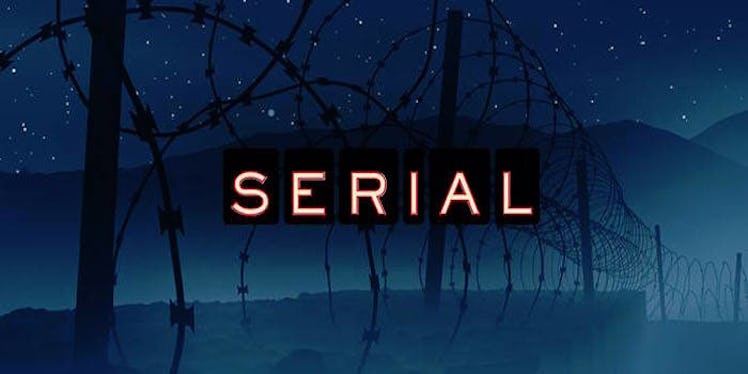
Why The Second Season Of 'Serial' Falls Short For Fans Of The Podcast
Whenever I play a new episode of "Serial" and hear that familiar and unsettling piano tune, I get a flutter in my stomach.
The tune became associated with curiosity and suspense as Sarah Koenig unfolded the story of Hae Min Lee, a Baltimore teenager who was found murdered in 1999.
What was so beautiful about the case was the fact that so few of us knew about it.
We had no prior information, no prior biases and no one to root for. The case was unfolding before us, as we listened with fresh ears. It's really the best way to consume any type of media.
No matter what you do, prior knowledge will hurt your perception of it.
However, with "Serial," there was no precedence, nothing to compare it to and nothing to prepare yourself with. You just sat there and let the story wash over you and consume you.
I really mean consume you.
It was difficult for me to not bring the podcast up in every conversation.
Did he do it? If not, who did?
Sarah Koenig's voice would play in my head as I asked those questions. I've listened to the episodes over and over, as if I could crack the case myself.
It felt like I was the one doing the investigating. It felt special to me.
That's why, when rumors began flying around that the second season of "Serial" was going to cover the case of Bowe Bergdahl, the US Army officer who deserted and was captured by the Taliban, I was hesitant.
Of course I was interested in the case.
The questions arose. Why did he leave? What happened when he did? Did he really deserve the punishment he got?
However, the entire country had these questions. It was no longer special to me. I had to share it with everyone.
Let's bring it back a bit to the first season of "Serial."
The case of Hae Min Lee was largely brought back by the fact that many believed the man convicted of the crime, Hae's ex-boyfriend Adnan Syed, was innocent.
Not only that, people have dedicated their lives to clearing his name. Especially in the world we live in now -- where countless people are being exonerated due to increased technology -- it felt so relevant, despite being an old case.
However, the relevance isn't the only reason it worked.
While the case occurred in Baltimore and was deeply seeded in the DNA of Woodlawn High School (where the victim and the accused went to school), it felt like it could have happened anywhere or to anyone.
Anyone could be wrongly accused of a crime, especially the way "Serial" portrayed it. So much of the state's case hinged on one witness' account of the events.
It felt so close to home. With "characters" like the popular girl in school, the homecoming king and the older ex-boyfriend, the entire "cast" felt like people we could have known.
With the second season covering a story that took place on an international scale, the intimacy that was so grabbing and urgent in the first season was taken away.
The story has been covered on every major news outlet. So much information has already been dug up from the case. So many people have already formed their opinions.
If I walked down the street and asked people before the season started if they knew who Adnan Syed was, they would look at me funnily. If I asked the same about Bowe Bergdahl, they would instantly connect him to his case.
I wish we could have had a case we could grow with. I wish "Serial" had brought us a case we could learn about together as an audience and talk about without any prior disposition.
I love "Serial." It was a truly groundbreaking series that brought light to people we don't often talk about.
I'm still going to listen to "Serial."
I have to admit, even after all my reasoning for being disappointed by its choice of subject, I'm still intrigued.
Am I going to be consumed by it like I was by the first season? No.
But Sarah Koenig is doing something that goes past any of these cases.
She's sending a message that we deserve the truth, and that we can find it all on our own.